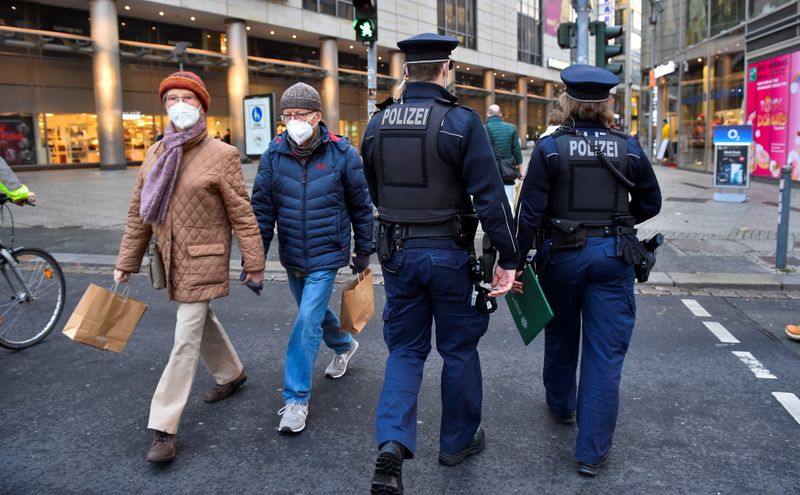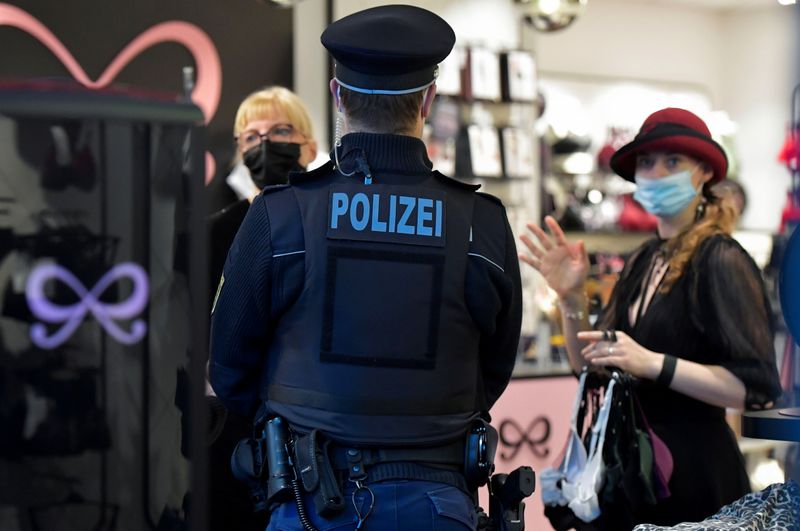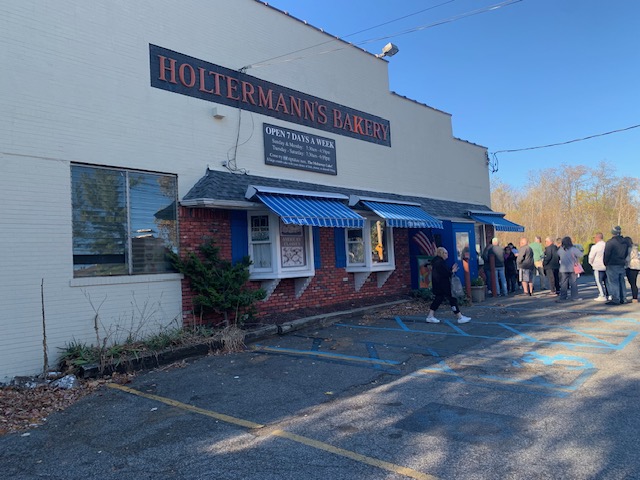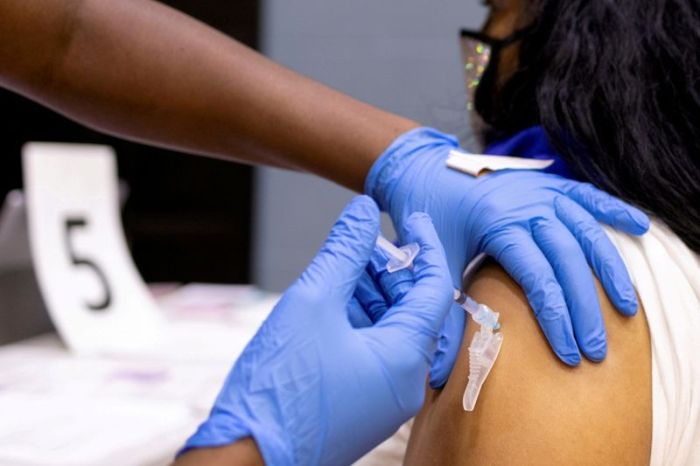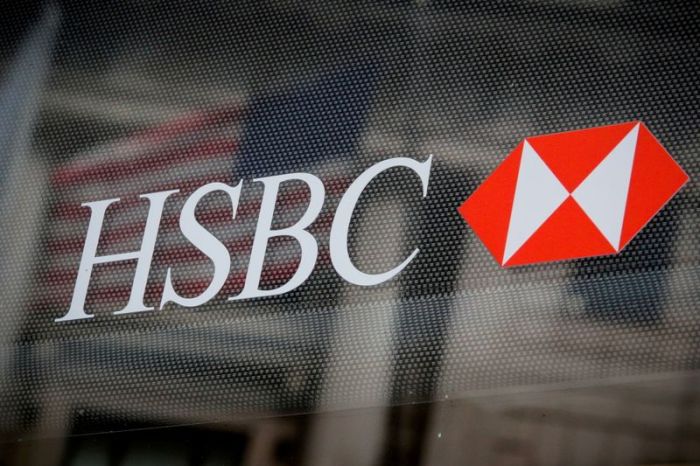By Emma Thomasson and Paul Carrel
BERLIN (Reuters) -German Social Democrat Olaf Scholz called on Wednesday for vaccinations to be made compulsory for targeted groups, saying that fighting the coronavirus pandemic will be his top priority as he prepares to take over as chancellor from Angela Merkel.
Scholz, who is expected to replace Merkel early next month after his coalition deal with two other parties has been approved, said he would set up a crisis team at the chancellery to coordinate coronavirus policy between the federal and regional governments.
“Vaccination is the way out of this pandemic. In institutions where vulnerable groups are cared for, we should make vaccination compulsory,” he told a news conference to present the deal he struck with the ecologist Greens and pro-business Free Democrats to form Germany’s next government.
Merkel, who met the leaders of the incoming coalition on Tuesday to discuss the pandemic, pushed for a two week lockdown, but they rejected the idea, Bild newspaper said on Wednesday.
Katrin Goering-Eckardt, parliamentary leader of the Greens, said continual lockdowns and restrictions on social contact were a bigger imposition than requiring vaccinations.
HEALTH WORKERS
Germany reported 66,884 new coronavirus infections and 335 more deaths due to the virus on Wednesday, bringing the total number of fatalities close to 100,000, according to figures by the Robert-Koch-Institute of infectious diseases.
The new coalition also plans to set aside 1 billion euros ($1.12 billion) for bonus payments for carers. Nursing homes are suffering from a shortage of staff that could be exacerbated by plans to make vaccination compulsory for health workers.
The health ministry has put together a proposal to make it compulsory for workers in nursing homes and clinics to be vaccinated from Jan. 1, 2022, Spiegel magazine reported.
The FDP has so far opposed making vaccines compulsory. Its leader Christian Lindner said on Wednesday people should avoid all unnecessary contact to prevent the spread of the virus.
Germans have been waiting in line for hours to get vaccinated in recent days. About 68% of the population is fully vaccinated, below the average in western Europe.
On Tuesday, 638,109 people got a shot, the highest daily figure since July 28, although the vast majority of those were booster vaccinations.
Neighbouring Austria has re-imposed a full lockdown due to surging caseloads and plans to make vaccinations compulsory next year.
Germany’s Ethics Council, an independent group of experts that advises the government, indicated it could reconsider its rejection of compulsory vaccination.
“We are really thinking about it, because we see that the numbers are rising,” its deputy chairperson, Susanne Schreiber, told RTL television.
($1 = 0.8919 euros)
(Additional reporting by Kirsti Knolle; editing by Philippa Fletcher, Emelia Sithole-Matarise and Gareth Jones)

